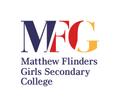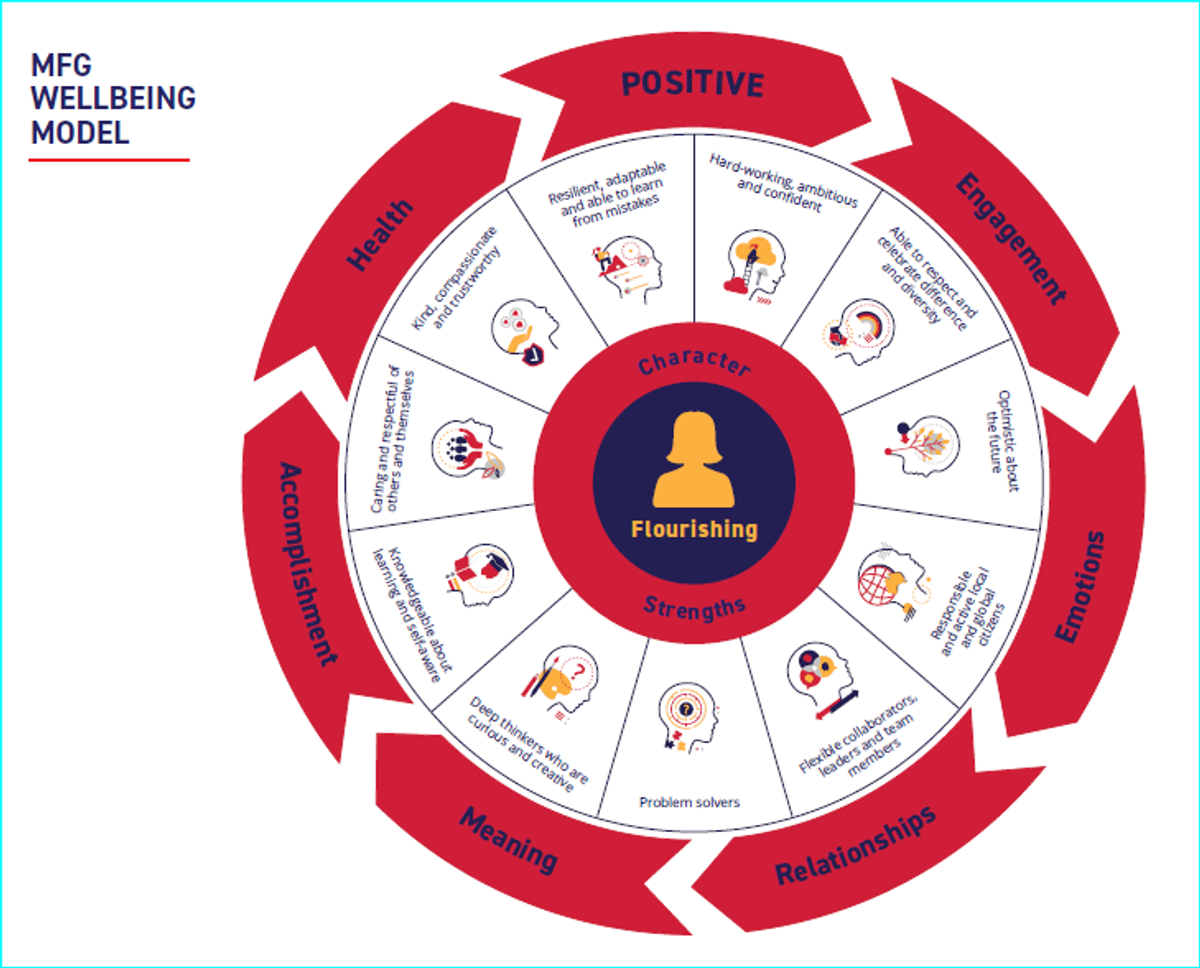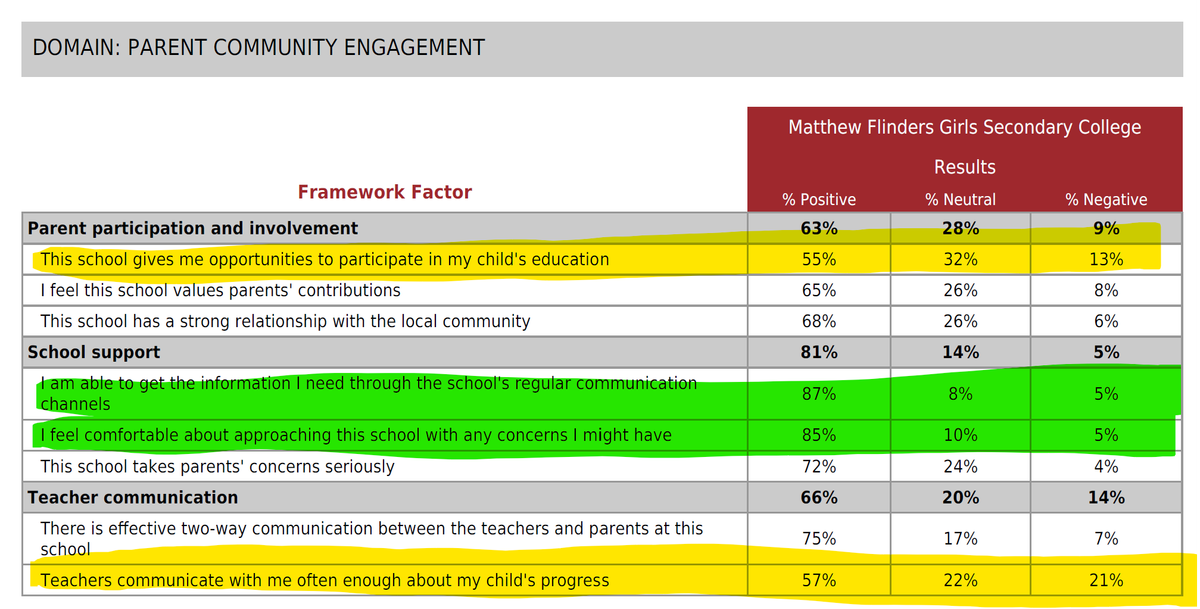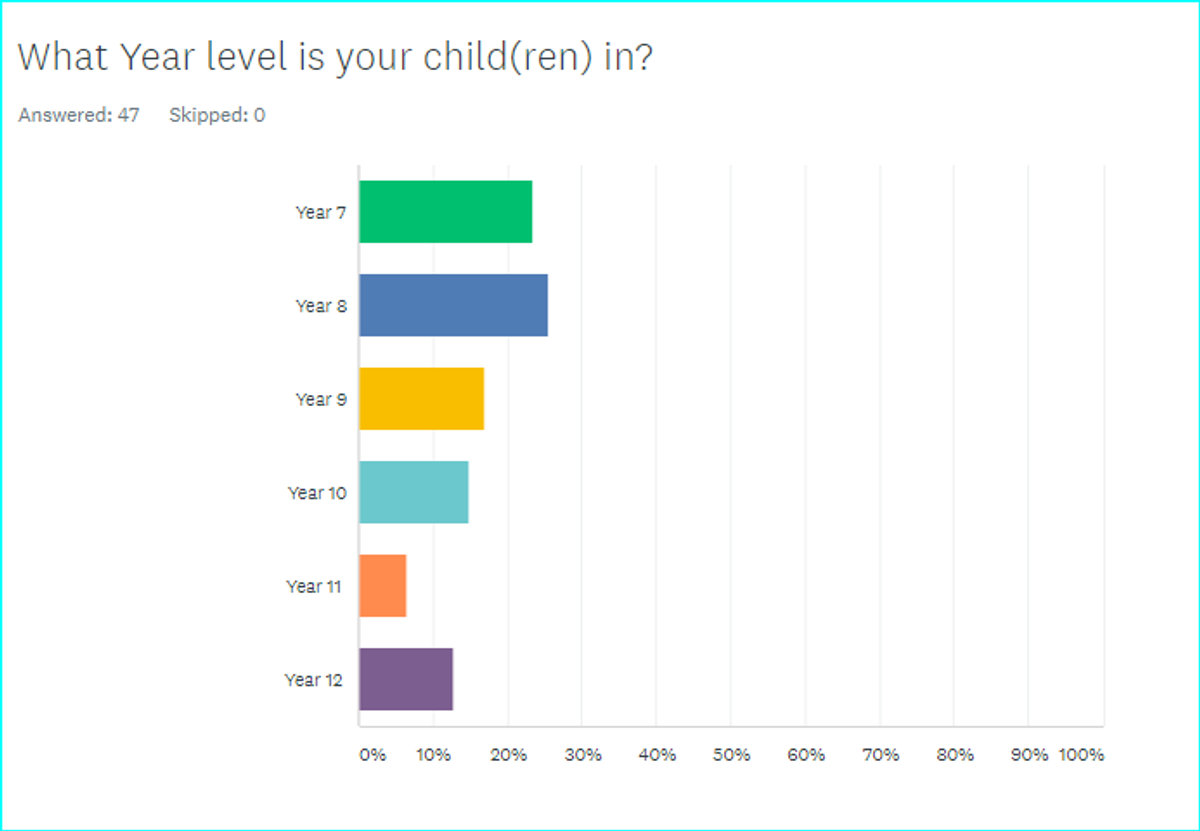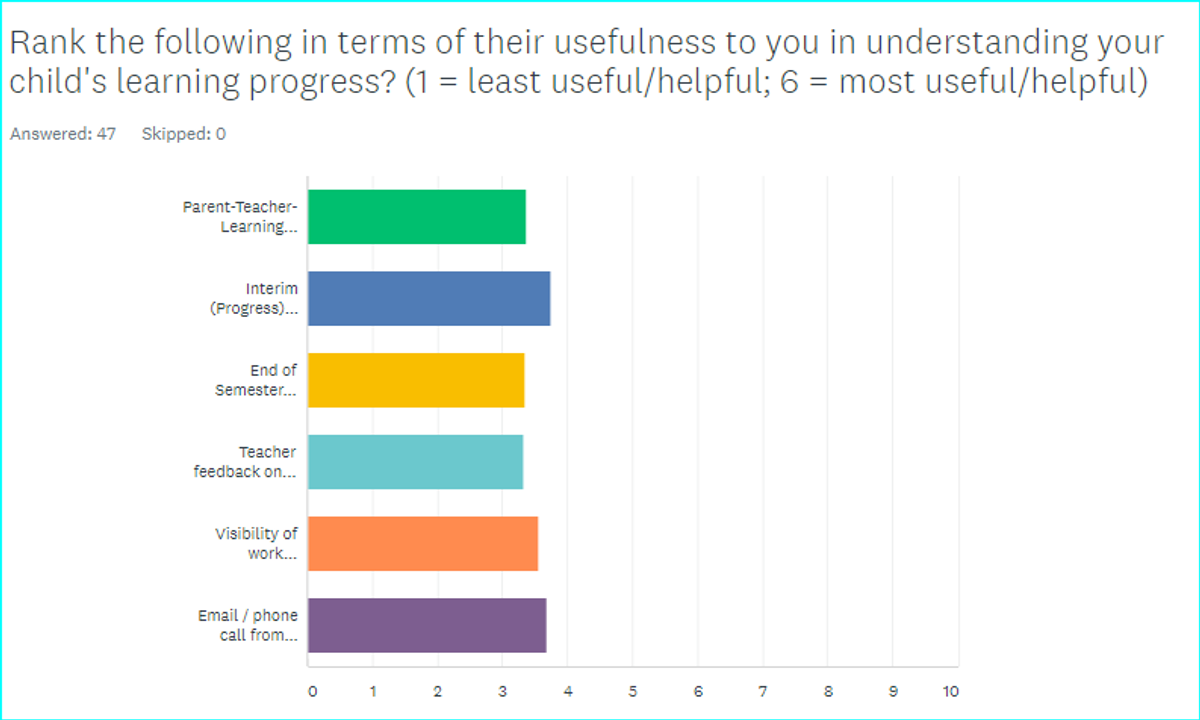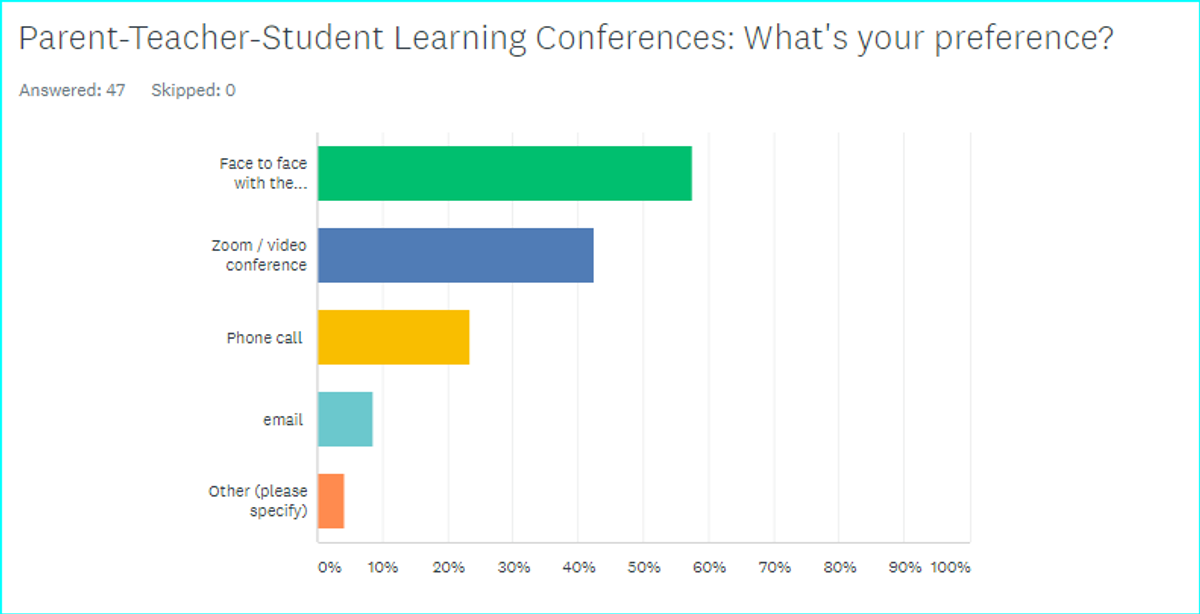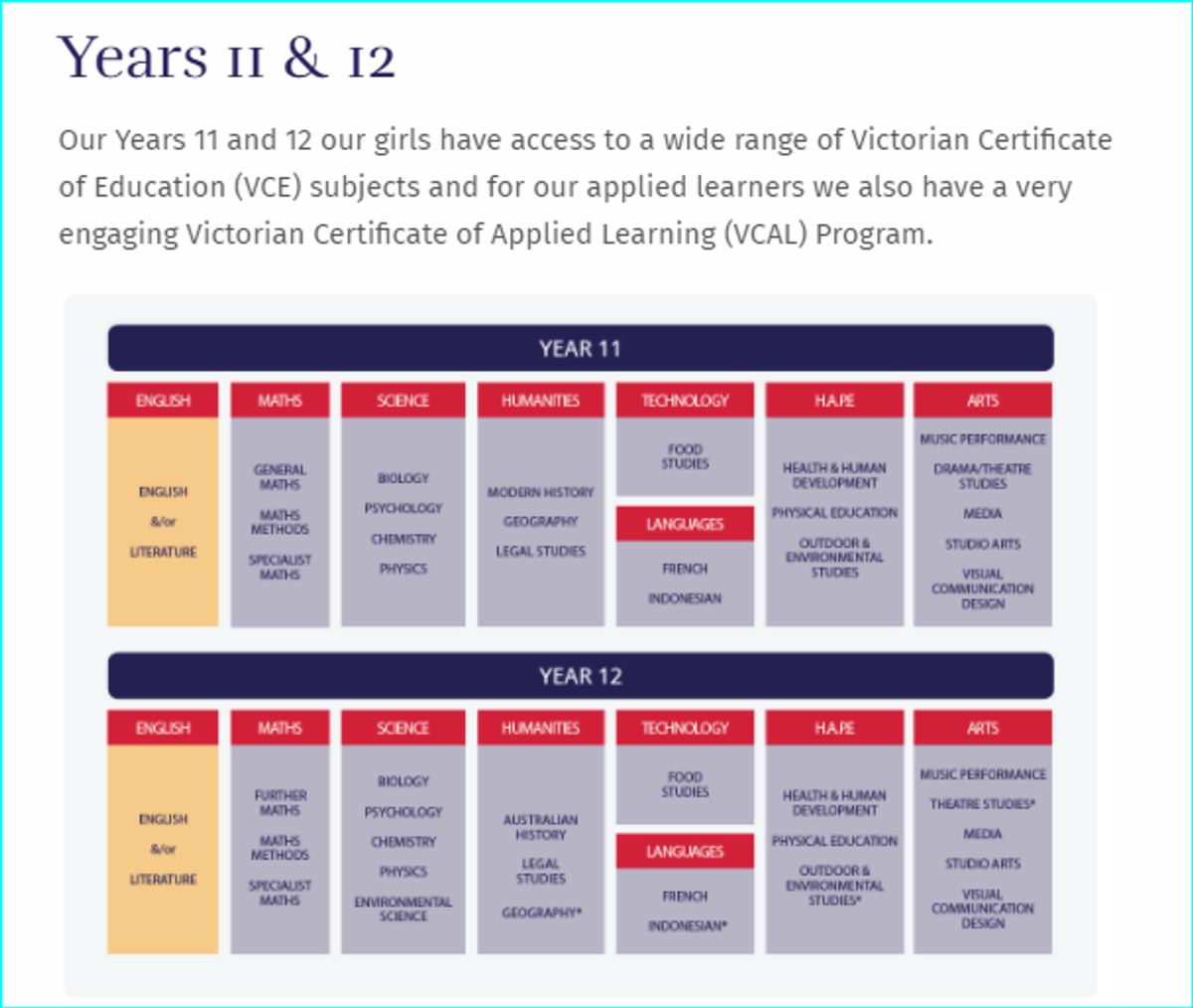Learning and Teaching
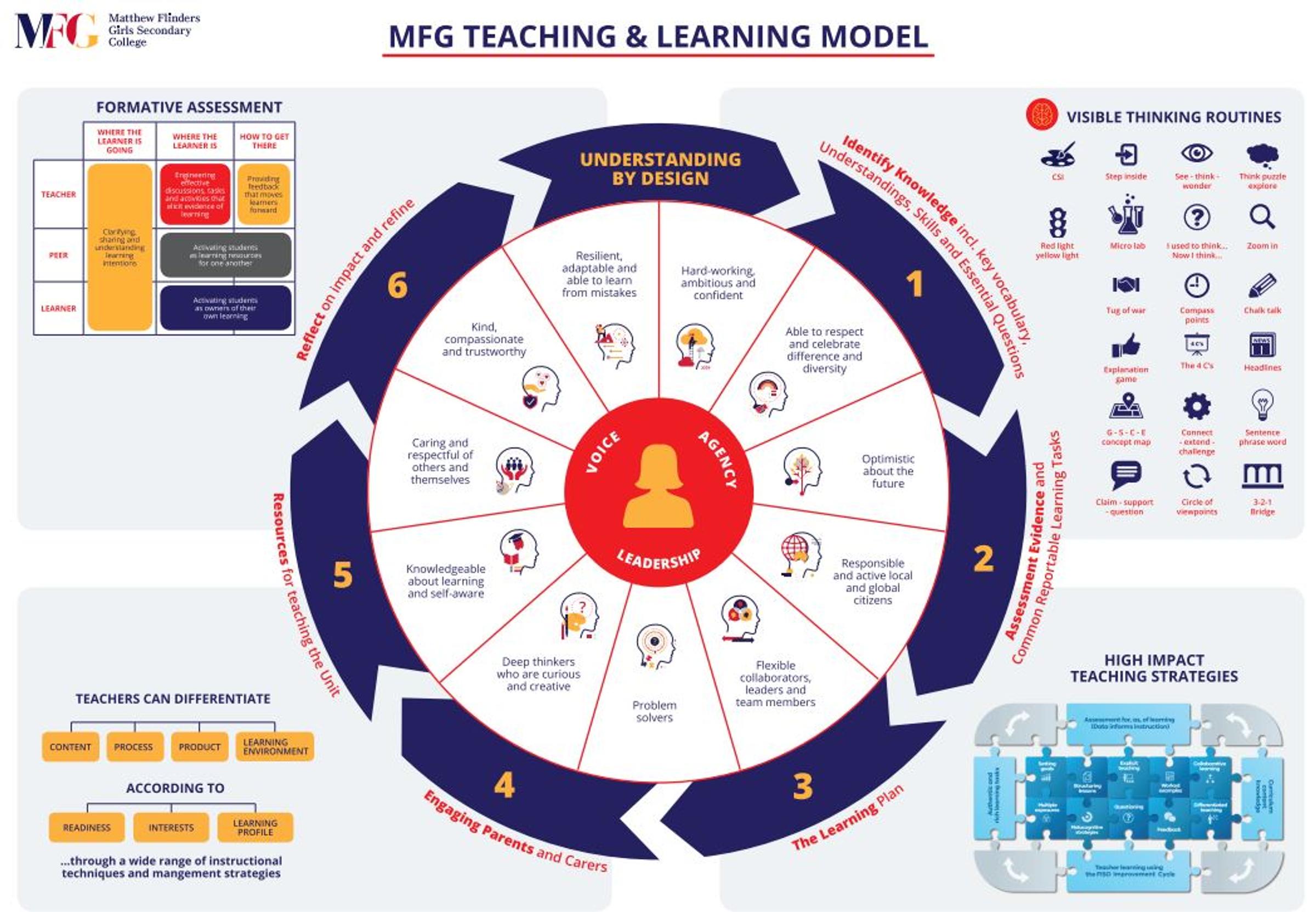
- STAFF PROFESSIONAL LEARNING DAY – TUESDAY MAY 25TH
There will be no classes on Tuesday 25th May – this is one of our planned Staff Professional Learning Days. The focus of this day – for all MFG staff – will be to further unpack our MFG Wellbeing Model and our three year strategy in relation to bringing it to life through our curriculum and programs.
- PARENT-CARER TERM 1 LEARNING PROGRESS SURVEY - REFLECTIONS AND NEXT STEPS
In response to our 2020 Parent Opinion Survey we developed a short survey to better understand our parents’ perceptions of how we currently report learning progress and collect some feedback and questions for us to consider. This survey was open to all parents until the end of Term 1.
Thanks to the 47 parents who took the time to provide their responses – we greatly appreciate your feedback and the time you took to provide it.
Here are our reflection below, organised as a P (Positive), M (Minus), I (Interesting) and some questions and suggestions for us to follow up and further investigate.
Positive
· Positive responses to the usefulness of our Parent-Teacher-Student interviews/conferences (face-to-face is preferred; the feeling was that our teachers knew their students
· Parents/carers feel there is an open line of communication with teachers and they can be contacted via email when needed (and vice versa)
Minus
· Too many Compass posts/messages
· Current reporting practices don’t provide enough information about skills, attitudes and mindset in relation to progress
· Bookings for Parent-Teacher-Student Learning Conferences-interviews book out too quickly
· Not enough notification when teacher feedback is available on Compass for parents to view
· Tasks on Compass still visible that are old/outdated
Interesting / questions / ideas to follow up:
· Better use by teachers of the student diary to report on / provide feedback on learning progress
· Improve our communication processes and notify parents when grading / feedback is available to view on Compass (eg email to parents)
· Teachers to provide more honest feedback on student work
· Investigate how to make feedback on Compass more visible and easier to access for parents/carers
· All teachers being aware of any learning difficulties that a student might be facing
· Teachers to hide old/outdated tasks
· Better communication earlier from teachers if there are issues, rather than at the end of term
· Communication from teachers to parents/carers about specific things that the parents/carers can help with if a student is struggling with a subject/class
· Develop a more explicit approach to teaching organisation, time management skills, revision and study techniques at Years 7-9
· Run two nights of Parent-Teacher-Student Learning Conferences rather than one to cater for more parents/carers?
· How can we better provide information to parents/carers about progress in relation to:
- Skill development
- Attitude to learning / mindset
5 TIPS FOR PARENTS/CARERS:
1. If you’re using Compass to look at student progress, teacher feedback etc, use a laptop/computer and not a phone.
2. Prior to coming to MFG for a Parent-Teacher-Student Conference, do some ‘detective work’ using Compass. You could look at:
a. ATTENDANCE – do any absences need to be approved by me?
b. TASKS – Are they on-time, over-due or pending?
c. FEEDBACK – Click on the Learning Task and the Feedback Tab:
- Any task in ALL CAPITALS is a CRLT (Common Reportable Learning Task). These are usually the important assessments. Focusing on how your child performed on these will save you time when looking at their list of Learning Tasks.
- ROUTINE: Develop a routine of using Compass. My son is in Year 8 and I have a quick scan of his Learning Tasks every Thursday so I know what to ask him about.
- QUESTIONS ABOUT LEARNING THAT REPLACE ‘HOW WAS SCHOOL TODAY?’
With slight wording modifications, these questions can work with children of all ages:
- Tell me about a moment today when you felt excited about what you were learning.
- Tell me about a moment in class when you felt confused.
- Think about what you learned and did in school today. What’s something you’d like to know more about? What’s a question you have that came from your learning today?
- Were there any moments today when you felt worried? When you felt scared?
- Were there any times today when you felt disrespected by anyone? Tell me about those moments.
- Were there times today when you felt that one of your classmates demonstrated care for you?
- Were there any moments today when you felt proud of yourself?
- Tell me about a conversation you had with a classmate or friend that you enjoyed.
- What was challenging about your day?
- What did you appreciate about your day?
- What did you learn about yourself today?
- Is there anything that you’d like to talk about that I might be able to help you figure out?
- Is there anything you’re worried about?
- What are you looking forward to tomorrow?
- Is there a question you wish I’d ask you about your day?
Source: https://www.edutopia.org/blog/parents-fifteen-questions-replace-how-was-school-today-elena-aguilar
EXTENDED INVESTIGATION - NEW SUBJECT OFFERING FOR 2022 – YEAR 12 ONLY
The only new subject to be added to our VCE subject offerings for 2022 is VCE Units 3-4 Extended Investigation (EI).
https://www.vcaa.vic.edu.au/curriculum/vce/vce-study-designs/extendedinvestigation/Pages/Index.aspx
We have applied with North Geelong SC for a VCE Collaboration Grant - $35,000 in funding to be able to offer this subject in partnership with them.
The purpose of the VCE Collaboration Fund is to broaden VCE subject choice and the quality of VCE offerings in rural and regional Victoria through school partnerships.
VCE students in rural and regional areas of Victoria typically have fewer subjects to choose from than those in metropolitan areas.
Extended Investigation is a ‘blue ribbon’ VCE subject, only studied by about 300 students in Victoria in 2019.
Top Talks showcases exceptional oral presentations from VCE Extended Investigation students.
Selected students shared their original and rigorous independent research and findings through 8–10 minute presentations.
VCE Units 3-4 Extended Investigation
The VCE Extended Investigation enables you to develop, refine and extend knowledge and skills in independent research and carry out an investigation that focuses on a rigorous research question of your choosing. The investigation may be an extension of an area of curriculum already undertaken by you (eg in Biology or English or Psychology) or it may be completely independent of any other study in your VCE program. Through this study, you will develop your capacity to explore, justify and defend your research findings in both oral and written forms to an educated non-specialist audience.
The VCE Extended Investigation develops your understanding of what constitutes a good research question. You will develop an ethical, robust, disciplined and rational approach to gathering, interpreting and evaluating evidence in order to answer your research question. In this study, you will consider how research questions are developed and refined to enable the researcher to address the key issues proposed by the research within the limits that time and resources impose. You will conduct a review of relevant literature, develop research project management knowledge and skills, and develop ways of effectively presenting and communicating research findings. You are introduced to a broad range of research methods and will explore their comparative suitability for the investigation of particular questions.
Extended Investigation will enable you to
- develop and construct a rigorous research question
- understand and apply research methods, explore a chosen area of investigation in depth
- develop as an independent, critical and reflective learner and thinker
- develop research project management knowledge and skills
- analyse and evaluate findings and results
- develop skills in written and oral presentation of research findings.
Extended Investigation is comprised of a Unit 3 and 4 sequence:
- Unit 3: Designing an extended investigation
- Unit 4: Presenting an extended investigation.
NOTE: There are no prerequisites for entry to Unit 3 and students must undertake Unit 3 and Unit 4 as a sequence. However, students will need to meet some criteria in order to be able to study this subject given that this study requires an extremely high degree of student independence, motivation and responsibility.
Units 3 and 4 are designed to a standard equivalent to the final year of secondary education. Accordingly, the standards of research expected of students undertaking this study are at a level consistent with the final year of secondary education.
Pathways: The skills that you develop in this study are transferable to any higher education course or vocational education and training program.
The MFG Curriculum Handbooks can be viewed and downloaded from the MFG website: https://www.mfgsc.vic.edu.au/our-learning/
ATTITUDES TO SCHOOL SURVEY 2021
We value student voice as a means to improving student engagement, wellbeing and quality teaching and are conducting a survey to find out what your child thinks of their school.
The AtoSS is an annual student survey offered by the Department of Education and Training to assist your child’s school to gain an understanding of students' perceptions and experience of school. Students will be asked about their thoughts and feelings in relation to their school, their learning, peer relationships, bullying and life in general.
There are also some questions about student health and wellbeing. Understanding health and wellbeing needs is important to support students to learn and thrive at school. The Department is providing this addition to the core survey to allow your child’s school to capture this information to support students.
Students in Years 7 to 12 will be asked about resilience, family relationships, community connections, health (including mental health), access to health services and physical activity.
This year, the AtoSS will be conducted at school over the period between May 26th and June 11th.
What are the benefits?
In our experience, young people enjoy having their say. We have been running this survey for nearly 20 years and it has been invaluable in helping schools understand student views. The school will use the survey results to plan programs and activities to improve your child's schooling experience.
What are the risks?
While we do not anticipate many risks of participation, some students may find some of the survey questions too personal and sensitive in nature. Should you agree for your child to participate, they are still free to skip questions or to withdraw at any stage if the survey makes them upset or uncomfortable.
The survey has been approved by a Human Research Ethics Committee. The questions are selected from validated survey instruments, are strength-based, and tailored for each year level group.
What will my child be asked to do?
Your child will be invited to complete the survey online during class time using a purpose built secure online survey tool. It is important to note that we are not in any way “testing” your child. Please note:
- Student participation in the survey is voluntary and students may withdraw at any time.
- The survey will take around 20-45 minutes to complete.
How is my child’s confidentiality protected?
Your child will be provided with a unique login to complete the survey from their teacher. The student login is an assigned identifier that may be used to link data for statistical and research purposes only. Personally identifiable data will not be recorded in the survey response file. This ensures that the confidentiality of your child’s responses is protected at all times.
How will results be reported?
The survey results will be reported back to the school in an aggregate form throughout the survey period. All survey data that is made available in reports are for groups of students only so that no individual student can be identified. Data suppression rules are used for schools with low student numbers per year level.
Your school may share the results of the survey with parents, in documents such as the School Annual Report.
Options for participation Participation in this survey is voluntary. If you do not wish for your child to do the survey, please opt out via email to your school: info@mfgsc.vic.edu.au Please do so before May 26th 2021 stating that you wish to opt out of your child’s participation, along with their name and year level. If your school does not receive a Refusal of Consent email from yourself before the survey commencement date mentioned within this letter, it means that you give your consent for your child to participate in the 2021 Attitudes to School Survey. |
A copy of the survey that we are asking your child to complete is available from your child’s school. Please contact me if you would like to see the survey before making your decision about whether you would like your child to participate.
If you would like more information, please speak to your child’s teacher, or contact the Department at attitudes.school.survey@education.vic.gov.au.
Damien Toussaint, Assistant Principal, Learning and Teaching
